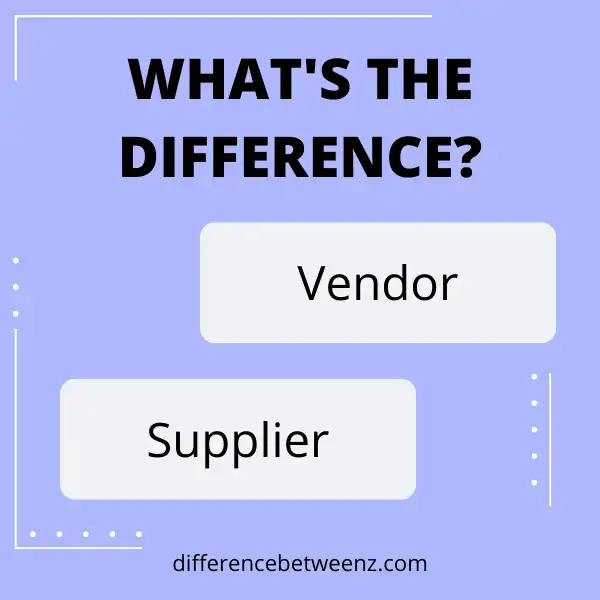In business, there are different types of relationships that can be formed with other companies. Two of the most common are those of a vendor and a supplier. Though these two terms are used interchangeably often, they do have different meanings.
Oftentimes, businesses will use the terms “vendor” and “supplier” interchangeably when referring to other companies with which they do business. However, there is a big distinction between the two types of relationships. A vendor is typically someone who you purchase products or services from in order to resell them to your customers.
Who is Vendor?
A vendor is a person or organization that supplies products or services to another person or organization. In business, the term is used to refer to the company that provides goods or services to another company. The term can also be used in reference to the individual who sells goods or services to a business.
Vendor management is the process of overseeing and coordinating the activities of vendors. This includes selecting vendors, negotiating contracts, and monitoring performance. Vendor management is a crucial part of any business operation, as it helps to ensure that products and services are delivered in a timely and efficient manner.
Who is Supplier?
Suppliers are companies that provide goods or services to other businesses. In many industries, suppliers are an essential part of the supply chain and play a vital role in ensuring that products and services are delivered on time and meet quality standards.
- There are many different types of suppliers, and the terms “supplier” and “vendor” are often used interchangeably. However, there are some key differences between these two terms.
- Suppliers typically have long-term contracts with their customers and provide a wide range of products or services. In contrast, vendors usually have shorter-term contracts and provide narrower ranges of products or services.
- Suppliers are also typically larger and more established than vendors. Because of their importance in the supply chain, suppliers must meet stringent quality standards and adhere to strict delivery timelines.
To ensure that they can meet these demands, suppliers typically invest heavily in research and development and have robust manufacturing capabilities.
Difference between Vendor and Supplier
- A vendor is a person or company from whom you purchase goods or services. A supplier, on the other hand, is a person or company that provides goods or services to vendors. In other words, a vendor sells goods or services to customers, while a supplier provides goods or services to vendors.
- The terms are often used interchangeably, but there is a distinction between the two. A supplier may provide raw materials, components, or finished products to a vendor, who then sells these items to customers.
- A vendor may also provide services, such as installation or repair services, to customers. Similarly, a supplier may provide services, such as logistics or packaging services, to vendors. Ultimately, the difference between a vendor and a supplier depends on the type of goods or services being provided.
Conclusion
It is important for businesses to understand the difference between a vendor and a supplier. A vendor provides a product or service that is necessary for your company to operate, while a supplier can provide products or services that are not essential. When choosing which type of company to work with, it is important to consider what each offers and how they can benefit your business.


